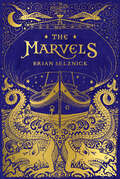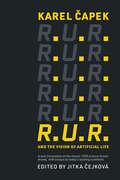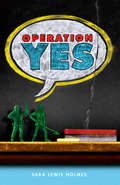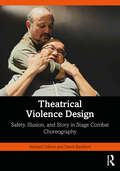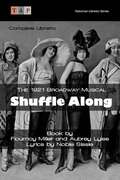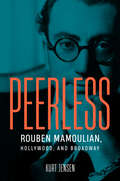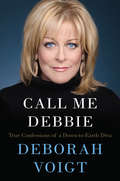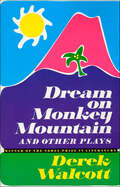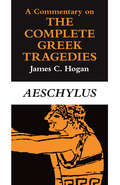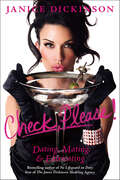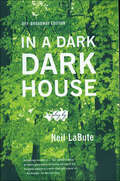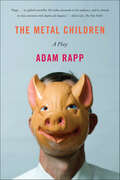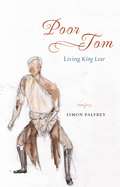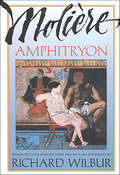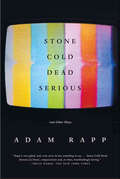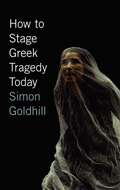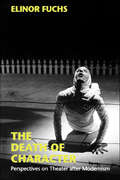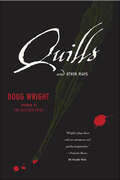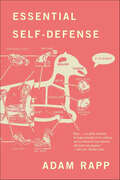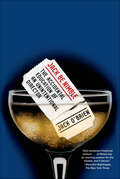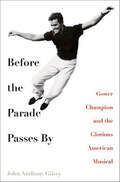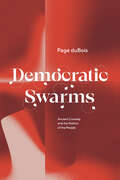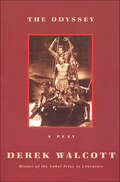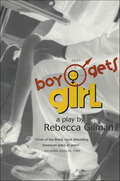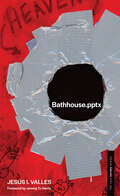- Table View
- List View
The Marvels
by Brian SelznickDon't miss Selznick's other novels in words and pictures, The Invention of Hugo Cabret and Wonderstruck, which together with The Marvels, form an extraordinary thematic trilogy!A breathtaking new voyage from Caldecott Medalist Brian Selznick.Two stand-alone stories--the first in nearly 400 pages of continuous pictures, the second in prose--create a beguiling narrative puzzle.The journey begins at sea in 1766, with a boy named Billy Marvel. After surviving a shipwreck, he finds work in a London theatre. There, his family flourishes for generations as brilliant actors until 1900, when young Leontes Marvel is banished from the stage.Nearly a century later, runaway Joseph Jervis seeks refuge with an uncle in London. Albert Nightingale's strange, beautiful house, with its mysterious portraits and ghostly presences, captivates Joseph and leads him on a search for clues about the house, his family, and the past.A gripping adventure and an intriguing invitation to decipher how the two stories connect, The Marvels is a loving tribute to the power of story from an artist at the vanguard of creative innovation.
R.U.R. and the Vision of Artificial Life
by Karel CapekA new translation of Karel Čapek&’s play R.U.R.—which famously coined the term &“robot&”—and a collection of essays reflecting on the play&’s legacy from scientists and scholars who work in artificial life and robotics.Karel Čapek's &“R.U.R.&” and the Vision of Artificial Life offers a new, highly faithful translation by Štěpán Šimek of Czech novelist, playwright, and critic Karel Čapek&’s play R.U.R.: Rossum&’s Universal Robots, as well as twenty essays from contemporary writers on the 1920 play. R.U.R. is perhaps best known for first coining the term &“robot&” (in Czech, robota means serfdom or arduous drudgery). The twenty essays in this new English edition, beautifully edited by Jitka Čejková, are selected from Robot 100, an edited collection in Czech with perspectives from 100 contemporary voices that was published in 2020 to celebrate the hundredth anniversary of the play.Čapek&’s robots were autonomous beings, but biological, not mechanical, made of chemically synthesized soft matter resembling living tissue, like the synthetic humans in Blade Runner, Westworld, or Ex Machina. The contributors to the collection—scientists and other scholars—explore the legacy of the play and its connections to the current state of research in artificial life, or ALife. Throughout the book, it is impossible to ignore Čapek&’s prescience, as his century-old science fiction play raises contemporary questions with respect to robotics, synthetic biology, technology, artificial life, and artificial intelligence, anticipating many of the formidable challenges we face today.ContributorsJitka Čejková, Miguel Aguilera, Iñigo R. Arandia, Josh Bongard, Julyan Cartwright, Seth Bullock, Dominique Chen, Gusz Eiben, Tom Froese, Carlos Gershenson, Inman Harvey, Jana Horáková, Takashi Ikegami, Sina Khajehabdollahi, George Musser, Geoff Nitschke, Julie Nováková, Antoine Pasquali, Hemma Philamore, Lana Sinapayen, Hiroki Sayama, Nathaniel Virgo, Olaf Witkowski
Operation Yes
by Sara Lewis HolmesReady? Line UP! FALL IN! And you'll fall for this timely and generous novel set on an Air Force base during the Iraq War, about an amazing teacher and the students she inspires.No one in her sixth-grade class knows quite what to make of Ms. Loupe, with her short hair, her taped square "stage" on the floor, and the interest in improvisational theatre. After all, their school is on an Air Force base--a place that values discipline more than improv. But her students soon come to love her fresh approach; and when her dear brother goes missing in Afghanistan, and Ms. Loupe herself breaks down, they band together to support their teacher. What starts as a class fundraiser expands into a nationwide effort for all injured troops, and an amazing vision of community and hope.
Theatrical Violence Design: Safety, Illusion, and Story in Stage Combat Choreography
by Richard Gilbert David BarefordTheatrical Violence Design offers the reader a complete education in the theory and practice of designing violence for the theater. From swordfights to exchanges of gunfire to domestic violence, the theater abounds in physical conflict. The artists who design that violence, sometimes called fight directors or choreographers, will find in this book an invaluable resource for becoming more expert at their craft. In the chapters of this book, they will encounter the core principles of creating violent effects, the body of knowledge with which they should be familiar, and the nuts and bolts of the process of design work from the first meeting with a director through closing night.This book is written for the student of stage combat to transition into violence design and will also be of interest to experienced violence designers and choreographers.
Shuffle Along: The 1921 Broadway Musical Complete Libretto
by Flournoy Miller Aubrey Lyles Noble SissleComplete libretto to the 1921 ground breaking musical. One of the most significant musicals of the 20th Century, “Shuffle Along” was a rarity, written, produced, and acted wholly by African Americans. For the first time racially diverse audiences celebrated the uniqueness of this musical together. While the New York Times praised Eubie Blake "swinging and infectious score," it panned the rest of the production “as extremely crude—in writing, playing and direction." That didn’t matter. New Yorkers, including George Gershwin and Fanny Brice, flocked to it and it soon became the most popular production of the season with record breaking sales. Its influences were felt throughout the 1920s when "Shuffle Along" type musicals became all the vogue.
Peerless: Rouben Mamoulian, Hollywood, and Broadway (Wisconsin Film Studies)
by Kurt JensenA proud Armenian who claimed a distant link to nobility, born in what was then part of czarist Russia, Rouben Mamoulian (1897–1987) was one of the most astonishing and confounding figures in American film and theater, directing the original stage productions of Porgy and Bess, Carousel, and Oklahoma!, as well as films including Love Me Tonight, Queen Christina, City Streets, and Silk Stockings. He was famously fired from the film version of Porgy and Bess in a dispute over publicity and quit Cleopatra after arguments over a single scene. Mamoulian’s mercurial confidence and autocratic tendencies were among the reasons he had a reputation for being uncompromising. This frustrating mix of genius and stubbornness, of critical successes and financial flops, has proven challenging for biographers. Kurt Jensen’s magisterial volume, extensively researched and filled with trenchant observations, brings to life this charming, flawed, and fascinating man—and demonstrates how the wellspring of his art contained the seeds of his own destruction. Drawing upon Mamoulian’s unfinished memoir and voluminous diaries, as well as interviews with the director’s surviving collaborators, Jensen delivers fresh and informative insider stories from seminal productions. Meanwhile, he explores Mamoulian’s aesthetic principles and strategies as manifested in lighting, choreography, and sound design. A tour de force, Peerless offers readers a multifaceted, in-depth look at an idiosyncratic genius.
Call Me Debbie: True Confessions of a Down-to-Earth Diva
by Deborah VoigtInternationally beloved opera star Deborah Voigt recounts her harrowing and ultimately successful private battles to overcome the addictions and self-destructive tendencies that nearly destroyed her life.Call Me Debbie is one of the most electrifying performances of Deborah Voigt’s life. The brilliantly gifted opera soprano takes us behind the velvet curtains to tell her compelling story—a tale of success, addiction, music, and faith as dramatic as any role she has performed. For the first time, she talks about the events that led to her dangerous gastric bypass surgery in 2004 and its shocking aftermath: her substantial weight loss coupled with the “cross addiction” that led to severe alcoholism, frightening all-night blackouts, and suicide attempts. Ultimately, Voigt emerged from the darkness to achieve complete sobriety, thanks to a twelve-step program and a recommitment to her Christian faith.Colored by hilarious anecdotes and juicy gossip that illuminate what really goes on backstage, Voigt paints diverting portraits of the artists with whom she’s worked, her most memorable moments onstage, and her secrets to great singing. She also offers fascinating insight into the roles she’s played and the characters she loves, including Strauss’s Ariadne and Salome, Puccini’s Minnie, and Wagner’s Sieglinde, Isolde, and Brünnhilde, sharing her intense preparation for playing them.Filled with eight pages of color photos, Call Me Debbie is an inspirational story that offers a unique look into the life of a modern artist and a remarkable woman.
Dream on Monkey Mountain and Other Plays
by Derek WalcottOn a Caribbean island, the morning after a full moon, Felix Hobain tears through the market in a drunken rage. Taken away to sober up in jail, all that night he is gripped by hallucinations: the impoverished hermit believes he has become a healer, walking from village to village, tending to the sick, waiting for a sign from God. In this dream, his one companion, Moustique, wants to exploit his power. Moustique decides to impersonate a prophet himself, ignoring a coffin-maker who warns him he will die and enraging the people of the island. Hobain, half-awake in his desolate jail cell, terrorized by the specter of his friend's corruption, clings to his visionary quest. He will try to transform himself; to heal Moustique, his jailer, and his jail-mates; and to be a leader for his people. Dream on Monkey Mountain was awarded the 1971 Obie Award for a Distinguished Foreign Play when it was first presented in New York, and Edith Oliver, writing in The New Yorker, called it "a masterpiece."Three of Derek's Walcott's most popular short plays are also included in this volume: Ti-Jean and His Brothers; Malcochon, or The Six in the Rain; and The Sea at Dauphin. In an expansive introductory essay, "What the Twilight Says," the playwright explains his founding of the seminal dramatic company where these works were first performed, the Trinidad Theatre Workshop.First published in 1970, Dream on Monkey Mountain and Other Plays is an essential part of Walcott's vast and important body of work.
A Commentary on The Complete Greek Tragedies: Aeschylus
by James C. HoganThis commentary offers a rich introduction and useful guide to the seven surviving plays attributed to Aeschylus. Though it may profitably be used with any translation of Aeschylus, the commentary is based on the acclaimed Chicago translations, The Complete Greek Tragedies, edited by David Grene and Richmond Lattimore. James C. Hogan provides a general introduction to Aeschylean theater and drama, followed by a line-by-line commentary on each of the seven plays. He places Aeschylus in the historical, cultural, and religious context of fifth-century Athens, showing how the action and metaphor of Aeschylean theater can be illuminated by information on Athenian law athletic contests, relations with neighboring states, beliefs about the underworld, and countless other details of Hellenic life. Hogan clarifies terms that might puzzle modern readers, such as place names and mythological references, and gives special attention to textual and linguistic issues: controversial questions of interpretation; difficult or significant Greek words; use of style, rhetoric, and commonplaces in Greek poetry; and Aeschylus's place in the poetic tradition of Homer, Hesiod, and the elegiac poets. Practical information on staging and production is also included, as are maps and illustrations, a bibliography, indexes, and extensive cross-references between the seven plays. Forthcoming volumes will cover the works of Sophocles and Euripides.
Check, Please!: Dating, Mating, & Extricating
by Janice DickinsonSupermodel Janice Dickinson’s over-the-top quest for Mr. Right is a hilarious rollercoaster of famous names, outrageous stories, and vicarious thrills.The inimitable, outrageous Janice Dickinson—America’s first supermodel and the bestselling author of No Lifeguard on Duty and Everything About Me Is Fake... And I’m Perfect—now serves up her most scintillating kiss and tell-all yet in Check, Please! Loaded with uncensored dish on her dating sagas and her stranger-than-fiction bedroom adventures, Check, Please! shows Dickinson as a real life Samantha Jones, and three decades at the top of the fast-track, glamorous world of modeling have given her a wealth of juicy stories. Dickinson dissects nearly 100 dates over a 25-year span—each one more jaw-droppingly outrageous than anything Jackie Collins could dream up. (There’s the Big Pharma billionaire, for example, who blurts out his fantasy of having Swarovski crystals shoved in every orifice before they’ve finished the first course of their first date—a declaration that forces Dickinson to quickly abandon the fantasy of “free botox forever” that he’d inspired in her.) Dickinson’s dates also reflect the changing times and the evolution of what she’s looking for in a man. From the unfettered hedonism of the 80s, a decade spent in white-hot one night stands and steamy affairs, to her heightened desire to find Mr. Right during the 90s, to her current state of play, Check, Please! is a fun, over-the-top vicarious thrill ride—with a core that’s highly relatable.
In a Dark Dark House: A Play
by Neil LaButeTwo brothers meet on the grounds of a private psychiatric facility. Drew, has been court-confined for observation and has called his older brother, Terry, to corroborate his claim of childhood sexual abuse by a young man from many summers ago. Drew's request releases barely-hidden animosities between the two: Is he using these repressed memories to save himself while smearing the name of his brother's friend? Through pain and acknowledged betrayal, the brothers come to grips with and begin to understand the legacy of abuse, both inside and outside their family home. In a Dark, Dark House is the latest work from Neil LaBute, American theater's great agent provocateur. The play will have its world Premiere in May 2007, Off Broadway at New York's MCC Theater.
The Metal Children: A Play
by Adam RappA play about a banned book, a small town, and fiction’s power to both divide and unite, from the “prodigiously talented” Pulitzer Prize finalist (Charles Isherwood, Variety).In small-town America, a young adult novel about teen pregnancy is banned by the local school board, igniting a fierce and violent debate over abortion, religious beliefs, and modern feminism. The decade-old novel’s directionless New York City author arrives in town to defend the book and finds that it has inspired a group of local teens to rebel in strange and unexpected ways. A timely and unforgettable drama about the failure of urban and heartland America to understand each other, The Metal Children explores what happens when fiction becomes a matter of life and death.Acclaim for Adam Rapp“An original . . . a distinctive voice.” —Michael Kuchwara, Associated Press“An oblique and haunting style reminiscent of Haruki Murakami’s best fiction.” —Ed Park, The Village Voice“Rapp is a latter-day incarnation of Sam Shepard.” —John Lahr, The New Yorker
Poor Tom: Living King Lear
by Simon PalfreyKing Lear is perhaps the most fierce and moving play ever written. And yet there is a curious puzzle at its center. The figure to whom Shakespeare gives more lines than anyone except the king—Edgar—has often seemed little more than a blank, ignored and unloved, a belated moralizer who, try as he may, can never truly speak to the play’s savaged heart. He saves his blinded father from suicide, but even this act of care is shadowed by suspicions of evasiveness and bad faith. In Poor Tom, Simon Palfrey asks us to go beyond any such received understandings—and thus to experience King Lear as never before. He argues that the part of Edgar is Shakespeare’s most radical experiment in characterization, and his most exhaustive model of both human and theatrical possibility. The key to the Edgar character is that he spends most of the play disguised, much of it as “Poor Tom of Bedlam,” and his disguises come to uncanny life. The Edgar role is always more than one person; it animates multitudes, past and present and future, and gives life to states of being beyond the normal reach of the senses—undead, or not-yet, or ghostly, or possible rather than actual. And because the Edgar role both connects and retunes all of the figures and scenes in King Lear, close attention to this particular part can shine stunning new light on how the whole play works. The ultimate message of Palfrey’s bravura analysis is the same for readers or actors or audiences as it is for the characters in the play: see and listen feelingly; pay attention, especially when it seems as though there is nothing there.
Amphitryon, By Molière: The Misanthrope / Amphitryon / Tartuffe / The Learned Ladies
by MolièreWilbur is at the peak of his form in this stellar translation of an unusual Molière play-populated with Greeks and Greco-Roman gods and flavored with the essences of vaudeville, fan-tasy, high comedy, farce, and even opera. Afterword by Richard Wilbur.
Stone Cold Dead Serious: And Other Plays
by Adam RappA collection of plays from Pulitzer Prize finalist Adam Rapp, "one of the more daring young stylists working today" (Time Out New York)Adam Rapp's plays have captivated audiences across the country with their unflinching explorations of the good, the bad, and the ugly in America's heartland and cities. Gathered here are three of his works: Faster, in which two young grifters try to strike a deal with the devil during the hottest summer on record; Finer Noble Gases, a lament for a band of arrested thirty-year-olds slouching toward adulthood amid East Village decay; and the Off-Broadway hit Stone Cold Dead Serious. An honest, strange, and humorous look at a blue-collar family struggling to survive in the face of disability and addiction, and the seemingly surreal lengths their teenage son will go to save them from themselves."Rapp is very gifted, and, even rarer, he has something to say . . . Stone Cold Dead Serious [is] brave, compassionate, and . . . breathtakingly moving." -(New York Times)
How to Stage Greek Tragedy Today
by Simon GoldhillFrom the stages of Broadway and London to university campuses, Paris, and the bourgeoning theaters of Africa, Greek tragedy remains constantly in production. This global revival, in addition to delighting audiences, has highlighted both the promise and the pitfalls of staging ancient masterpieces in the modern age. Addressing the issues and challenges these performances pose, renowned classicist Simon Goldhill responds here to the growing demand for a comprehensive guide to staging Greek tragedy today. In crisp and spirited prose, Goldhill explains how Aeschylus, Euripides, and Sophocles conceived their works in performance and then summarizes everything we know about how their tragedies were actually staged. The heart of his book tackles the six major problems facing any company performing these works today: the staging space and concept of the play; the use of the chorus; the actor’s role in an unfamiliar style of performance; the place of politics in tragedy; the question of translation; and the treatment of gods, monsters, and other strange characters of the ancient world. Outlining exactly what makes each of these issues such a pressing difficulty for modern companies, Goldhill provides insightful solutions drawn from his nimble analyses of some of the best recent productions in the United States, Britain, and Continental Europe. One of the few experts on both Greek tragedy and contemporary performance, Goldhill uses his unique background and prodigious literary skill to illuminate brilliantly what makes tragedy at once so exciting and so tricky to get right. The result will inspire and enlighten all directors and performers—not to mention the growing audiences—of ancient Greek theater.
The Death of Character: Perspectives on Theater after Modernism (Drama and Performance Studies)
by Elinor Fuchs"Extremely well written, and exceedingly well informed, this is a work that opens a variety of important questions in sophisticated and theoretically nuanced ways. It is hard to imagine a better tour guide than Fuchs for a trip through the last thirty years of, as she puts it, what we used to call the 'avant-garde.'" —Essays in Theatre". . . an insightful set of theoretical 'takes' on how to think about theatre before and theatre after modernism." —Theatre Journal"In short, for those who never experienced a 'postmodern swoon,' Elinor Fuchs is an excellent informant." —Performing Arts Journal". . . a thoughtful, highly readable contribution to the evolving literature on theatre and postmodernism." —Modern Drama"A work of bold theoretical ambition and exceptional critical intelligence. . . . Fuchs combines mastery of contemporary cultural theory with a long and full participation in American theater culture: the result is a long-needed, long-awaited elaboration of a new theatrical paradigm." —Una Chaudhuri, New York University"What makes this book exceptional is Fuchs' acute rehearsal of the stranger unnerving events of the last generation that have—in the cross-reflections of theory—determined our thinking about theater. She seems to have seen and absorbed them all." —Herbert Blau, Center for Twentieth Century Studies, University of Wisconsin, Milwaukee"Surveying the extraordinary scene of the postmodern American theater, Fuchs boldly frames key issues of subjectivity and performance with the keenest of critical eyes for the compelling image and the telling gesture." —Joseph Roach, Tulane University" . . . Fuchs makes an exceptionally lucid and eloquent case for the value and contradictions in postmodern theater." —Alice Rayner, Stanford University"Arguably the most accessible yet learned road map to what remains for many impenetrable territoryan obligatory addition to all academic libraries serving upper-division undertgraduates and above." —Choice"A systematic, comprehensive and historically-minded assessment of what, precisely, 'post-modern theatre' is, anyway." —American TheatreIn this engrossing study, Elinor Fuchs explores the multiple worlds of theater after modernism. While The Death of Character engages contemporary cultural and aesthetic theory, Elinor Fuchs always speaks as an active theater critic. Nine of her Village Voice and American Theatre essays conclude the volume. They give an immediate, vivid account of contemporary theater and theatrical culture written from the front of rapid cultural change.
Quills and Other Plays
by Doug WrightSelected early works from the Pulitzer Prize-winning playwright.Throughout his work, Doug Wright has often combined the personal, the social, and the political, in the process unearthing fundamental truths about life and art while casting an unblinking eye on the dark--and darkly funny--side of human nature. Gathered here are three of Wright's early plays, including Interrogating the Nude, a tongue-in-cheek reimagining of the uproar surrounding the debut of Marcel Duchamp's work in America; Watbanaland, a satiric dissection of yuppie desire and a haunting look at family and faith; and the Obie Award-winning Quills, which explores the boundaries of artistic expression and the dangers of censorship as they played out in the Marquis de Sade's final days at Charenton Asylum.
Essential Self-Defense: A Play
by Adam RappThe next work for the stage from the Pulitzer finalist Adam Rapp, Essential Self-Defense.In Essential Self-Defense, disgruntled misfit Yul Carroll takes a job as an attack dummy in a women's self-defense class and finds himself mysteriously drawn to Sadie, the repressed bookworm mercilessly honing her skills on him. Meanwhile, all's not well on the unassuming Midwestern streets of Bloggs: with local children vanishing at an alarming rate, our hero, his lady friend, and a motley assortment of poets, butchers, and punk librarians prepare to battle the darkness on the edge of town.
Jack Be Nimble: The Accidental Education of an Unintentional Director
by Jack O'BrienA warm, witty tell-all and history of American regional theater, from one of our best-loved directorsFor Jack O'Brien, there's nothing like a first encounter with a great performer, nothing like the sound of an audience bursting into applause. In short, there's nothing like the theater. Following a fairly normal Midwestern childhood, O'Brien hoped to make his mark by writing lyrics for Broadway but was instead pulled into the growing American regional theater movement by the likes of John Houseman, Helen Hayes, Ellis Rabb, and Eva Le Gallienne. He didn't intend to become a director, or to direct some of the most brilliant—and sometimes maddening—personalities of the age, but in a charming, hilarious, and unexpected way, that's what happened. O'Brien has had a long, successful career on Broadway and as artistic director of San Diego's Old Globe Theatre, but the history of the movement that shaped him has been overlooked. In the middle of the last century, some extraordinary people forged a link in the chain connecting European influences such as the Moscow Art Theatre and Great Britain's National Theatre with the flourishing American theater of today. O'Brien was there to see and record it all, in beautifully vivid detail. Funny, exuberant, unfailingly honest, Jack Be Nimble is the tale of those missing heroes, performances, and cultural battles. It is also the irresistible story of one of our best-loved theater directors, growing into his passion and discovering what he is capable of.
Before the Parade Passes By: Gower Champion and the Glorious American Musical
by John Anthony GilveyDuring the Golden Age of the Broadway musical, few director-choreographers could infuse a new musical with dance and movement in quite the way Gower Champion could. From his earliest Broadway success with Bye Bye Birdie to his triumphant and bittersweet valedictory, 42nd Street, musicals directed by Champion filled the proscenium with life. At their best, they touched the heart and stirred the soul with a skillful blend of elegance and American showmanship. He began his career as one-half of "America's Youngest Dance Team" with Jeanne Tyler and later teamed with his wife, dance partner, and longtime collaborator, Marge Champion. This romantic ballroom duo danced across America in the smartest clubs and onto the television screen, performing story dances that captivated the country. They ultimately took their talent to Hollywood, where they starred in the 1951 remake of Show Boat, Lovely to Look At, and other films. But Broadway always called to Champion, and in 1959 he was tapped to direct Bye Bye Birdie. The rest is history. In shows like Birdie, Carnival, Hello, Dolly!, I Do! I Do!, Sugar, and 42nd Street, luminaries such as Chita Rivera, Dick Van Dyke, Carol Channing, Mary Martin, Robert Preston, Tony Roberts, Robert Morse, Tammy Grimes, and Jerry Orbach brought Champion's creative vision to life. Working with composers and writers like Jerry Herman, Michael Stewart, Charles Strouse, Lee Adams, and Bob Merrill, he streamlined the musical making it flow effortlessly with song and dance from start to finish.John Gilvey has spoken with many of the people who worked with Champion, and in Before the Parade Passes By he tells the life story of this most American of Broadway musical director-choreographers from his early days dancing with Marge to his final days spent meticulously honing the visual magic of 42nd Street. Before the Parade Passes By is the life story of one man who personified the glory of the Broadway musical right up until the moment of his untimely death. When the curtain fell to thunderous applause on the opening night of 42nd Street, August 25, 1980, legendary impresario David Merrick came forward, silenced the audience, and announced that Champion had died that morning. As eminent theatre critic Ethan Mordden has firmly put it, "the Golden Age was over." Though the Golden Age of the Broadway musical is over, John Gilvey brings it to life again by telling the story of Gower Champion, one of its most passionate and creative legends.
Democratic Swarms: Ancient Comedy and the Politics of the People
by Page duBoisConsiders how ancient Greek comedy offers a model for present-day politics. With Democratic Swarms, Page duBois revisits the role of Greek comedy in ancient politics, considering how it has been overlooked as a political medium by modern theorists and critics. Moving beyond the popular readings of ancient Greece through the lens of tragedy, she calls for a revitalized look at Greek comedy. Rather than revisiting the sufferings of Oedipus and his family or tragedy’s relationship to questions of sovereignty, this book calls for comedy—its laughter, its free speech, its wild swarming animal choruses, and its rebellious women—to inform another model of democracy. Ancient comedy has been underplayed in the study of Greek drama. Yet, with the irrepressible energy of the comic swarm, it provides a unique perspective on everyday life, gender and sexuality, and the utopian politics of the classical period of Athenian democracy. Using the concepts of swarm intelligence and nomadic theory, duBois augments tragic thought with the resistant, utopian, libidinous, and often joyous communal legacy of comedy, and she connects the lively anti-authoritarianism of the ancient comic chorus with the social justice movements of today.
The Odyssey: A Play
by Derek WalcottWith its inspired counterpointing of Homeric and Caribbean themes, Derek Walcott's play The Odyssey, commissioned by Britain's Royal Shakespeare Company, springs from the same imaginative sources as his epic poem Omeros."[The Odyssey features Walcott's] voluptuous metaphor making and severe truth telling."--TimeEpisodes of the story of Odysseus' protracted wanderings from fallen Troy to his island home of Ithaca are pungently interspersed with a commentary by the blind singer Billy Blue. Proteus, the Old Man of the Sea, the giant Cyclops, Circe and her revelers, ghosts, and mermaids are among the cast. With its vast sweep and richly figurative language, The Odyssey confirms that Derek Walcott is as compelling a playwright as he is a poet.
Boy Gets Girl: A Play
by Rebecca GilmanWhat is a stalker? And what kind of life can a woman lead when she knows she is being followed, obsessively and perhaps dangerously, by one?This is the dilemma facing Theresa Bedell, a reporter in New York, in Rebecca Gilman's tensely fascinating new play. When Theresa goes on an awkward blind date with a friend of a friend, she sees no reason to continue the relationship--but the man, an attractive fellow named Tony, thinks otherwise. While Theresa is at first annoyed yet flattered by his continuing attention, her attitude gradually changes to one of fear and fury when he starts violently to menace her and those around her.In brilliantly delineating the kind of terror a woman in full control of her life feels when everything around her suddenly seems to be a threat, Gilman probes the dark side of relationships in the 1990s with the rich insight and compelling characterizations that have distinguished her earlier plays and made her one of the most exciting young playwrights working today.
Bathhouse.pptx (Yale Drama Series)
by Jesus I VallesThe sixteenth winner of the Yale Drama Prize, a big-hearted evocation of queer intimacy set in a bathhouse at the end of the world In this love letter to queer bathhouse culture, the Presenter, a Mexican-American public-speaking student, is thrust into the landscapes of queer intimacy, colonialism, and erotic community when their class presentation on the history of cleanliness and bathing starts to unravel. What had been a single presentation soon becomes a chorus, joining student presenters with the ghosts of bathhouses past, present, and future, along with the cleaning staff, A Conquistador!, and officials from the Centers for Disease Control, to explore queer desire and the gleeful delights of messiness. Here in the bathhouse at the end of the world, Jesús I. Valles conjures the ever-present yearning for skin to touch skin, a place of connection that shimmers in the steam of the bathhouse and refuses to ever fully fade. Bathhouse.pptx is the sixteenth winner of the Yale Drama Series prize and first winner chosen by Tony-nominated playwright Jeremy O. Harris.
